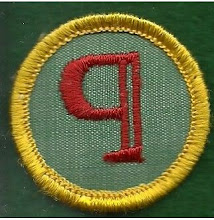“The ugly fact is books are made out of books.” (Cormac McCarthy, The New York Times, 1992)
Plagarism has been in the news again, this time a storm around TV host, Washington Post columnist and author Fareed Zakaria. He acknowledged and apologized for lifting parts of a magazine article and parts of one his books. But wait, maybe he didn’t plagiarize, according to The Daily Beast. Maybe he or his researchers were guilty of being lazy -- grabbing a clip online and not bothering to track down the source.
I am fascinated by the story behind Q.R. Markham's "Assassin of Secrets"; which is comprised of passages lifted from a number of other novels, which led many to ask-- why did the author think--in the age of Google -- that he could get away with it? Or was it an elaborate ruse?
This New Yorker article says “Assassin of Secrets” is looking more and more like pastiche or collage, rather than a “novel,” as we properly understand the word.
Rowan wouldn’t be the only writer in recent years—the era of redefining what is meant by ‘intellectual property’—to use plagiarism to make a statement. Those whose points have been well-taken, however, have generally been up-front about their borrowing. Among the best-known are Jonathan Lethem, whose 2007 essay in Harper’s, ‘The Ecastasy of Influence: A Plagiarism,’ comprised only lifted passages; and the British “collagiste” Graham Rawle, whose 2009 novel “Woman’s World” was “assembled from 40,000 fragments of text snipped from women’s magazines.”
Both of these were praised for their meta properties: they worked on the story level and also critiqued and commented upon the stories they told through their acts of appropriation. If Rowan is trying to comment upon the spy genre—on how it is both tired and endlessly renewable, on how we as readers of the genre want nothing but to be astonished again and again by the same old thing—then he has done a bang-up job. If he wants to comment on our current notions of discovery, to turn us all into armchair detectives, Googling here and there and everywhere to solve the puzzle, he is a genius. (David Shields, whom James Wood wrote about last year in this magazine, might approve of his project.)

No comments:
Post a Comment